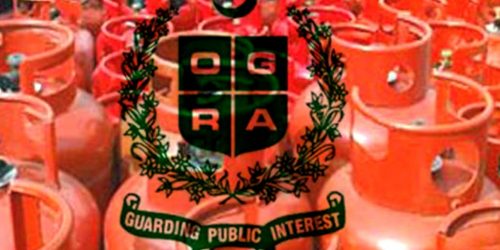ISLAMABAD: The Oil and Gas Regulatory Authority (OGRA) has been urged to reduce the gas tariff by 40 percent, in line with sharp decline in crude oil and furnace oil globally, and cap the human resource expenditure of the Sui Northern Gas Pipeline Limited (SNGPL), in a public hearing on Determination of Estimated Revenue Requirements (DERR) for financial year 2020-2021, held on Wednesday.
Limited number of stakeholders was allowed to participate in the public hearing physically, and few others were taken through virtual link.
The two-day public hearing was arranged at a local hotel.
In its petition, the SNGPL has sought approximately Rs73 billion from its gas consumers to meet its financial requirements during the upcoming financial year.
The new prices, if approved, will be effective from July 1st, 2020.
The projection of the SNGPL reflects an increase of Rs622.94 per mmbtu including previous years’ shortfall (Rs85.50 per mmbtu for financial year 2020-2021) only in normal business, and Rs102.08 per mmbtu as cost of supply for RLNG business.
The All Pakistan CNG Association (APCNGA) said the price of local gas is linked to crude and high sulfur furnace oil, which has come down by 35 to 50 percent; therefore, the gas price can be reduced by 40 percent.
The APCNGA Central Chairman, Ghiyas Abdullah Paracha, said, “The CNG sector is already paying the price of gas at Rs1,283 instead of Rs637 per MMBtu determined by the OGRA in June 2019.”
He said all the other sectors such as zero-rated export-oriented sector, the fertiliser industry, and the domestic consumers were enjoying subsidised rate of natural gas, and it was only the CNG, which was burdened with the amount of subsidy given to these sectors.
Ghiyas Abdullah Paracha, central chairman APCNGA said that the earlier price hike was also illegal, which must be reversed as the energy prices were retreating across the world but the gas prices were not being reduced in Pakistan.
According to Clause 7 of the OGRA Ordinance, he said the government could increase or reduce the price of natural gas after the Cabinet’s approval.
The government must issue policy guideline to the OGRA under rule 21 of OGRA Ordinance before the public hearing, which was not issued until June 24, therefore, the OGRA’s determined gas tariff will be applicable from July 1st, he added.
According to Clause 8A of OGRA Ordinance, he argued, only the regulator is empowered to fix the tariff of gas for retail consumers, which cannot be changed by the government.
However, he said, the government can impose developmental surcharge and taxes.
Paracha said that the price determined by the OGRA will be final. He noted that in June 2019, the OGRA determined the price of gas at Rs637 per MMBtu but the tariff was pushed up to Rs1,283 for the CNG sector, which was illegal; therefore, it should be reversed.
The Clause 7F or OGRA Ordinance allows all sectors to operate in the market, and allows the regulator to keep the price of alternative fuel reduced, he added. Referring to a letter written by the Petroleum Division to gas companies on March 10th, he said the division directed the gas companies to reduce UFG from 6.3 percent to four percent, cut profit from 20 percent to 15 percent, reduce depreciation by one percent, and cut transmission and distribution losses but the directives were not followed.
He said that imported LNG was being provided to different sectors without securing payment, and the entire burden was being shifted to the consumers of natural and imported gas.
The gas companies have illegally jacked up the transmission and distribution losses for which consumers are made to pay.
The chairman OGRA accepted during the hearing that reduced oil price in the international market could result in a reduced price of gas, and said that the impact of fluctuation in the price of dollar should not be shifted to consumers illegally.
The All Pakistan Textile Mills Association (APTMA) Representative, Shahid Sattar, stated that the board of directors and human resource expenditure of companies was increasing, which should be looked into, and a separate account must be maintained to deal ring fenced RLNG gas tariff.







